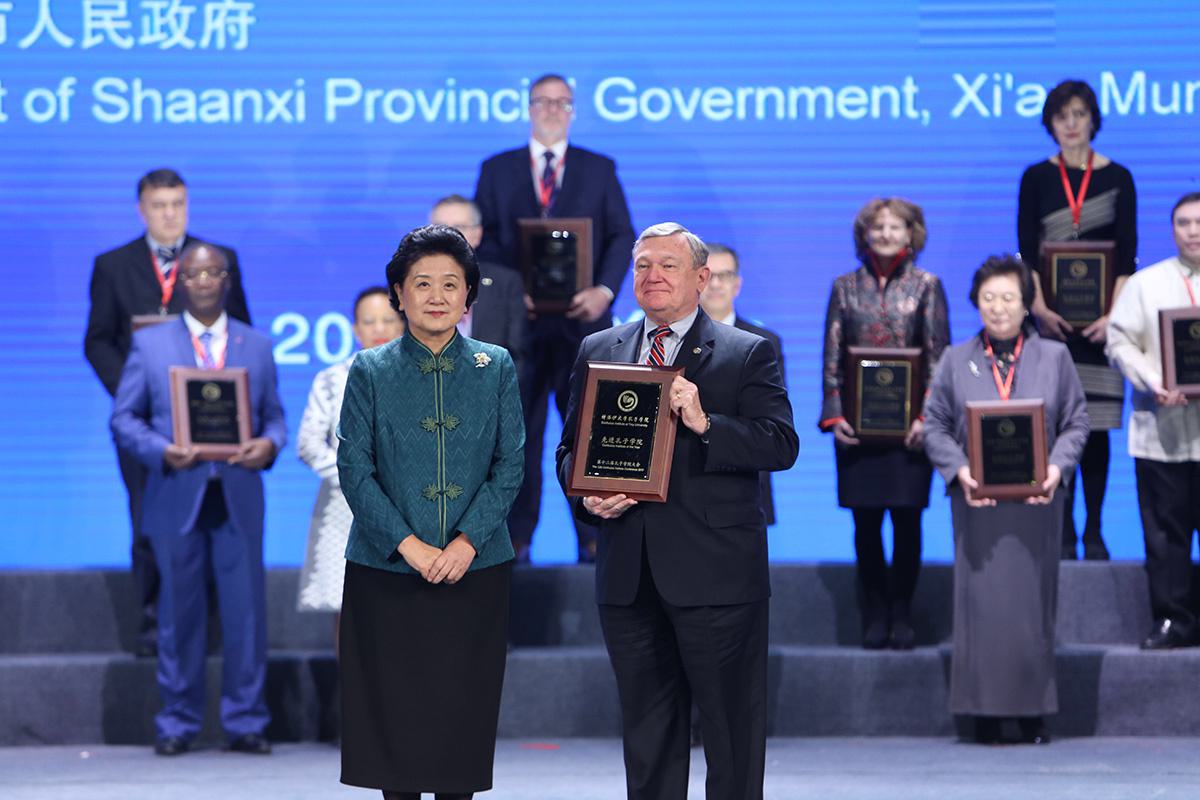After years of controversy and conflict, Confucius Institutes remain at certain Alabama universities, despite criticism over their tie to the Chinese communist government.
Confucius Institutes are public educational institutions with the express purpose of promoting Chinese culture and language. They have been criticized for their affiliation with the Chinese Communist Party (CCP).
Confucius Institutes are on college campuses around the world. They provide teachers, textbooks and operating funds and, according to the National Association of Scholars (NAS), “undermine academic integrity and promote censorship.”
The Trump administration declared Confucius Institutes a foreign mission of the Chinese Communist Party in 2018.
There are 18 Confucius Institutes in the United States as of June 2022. Two were in Alabama: one at Alabama A&M in Huntsville and another at Troy University.
Alabama A&M’s Confucius Institute announced its intention to close in 2021 after the Defense Department refused to provide contracts, grants and other funds to universities with Confucius Institutes as part of the Defense Authorization Act of 2021.
However, Troy's Confucius Institute is still up and running.
One-hundred-and-four Confucious Institutes have closed or are in the process of closing. At least 28 of these have been replaced with similar programs. At least 58 have remained in contact with their former Confucius Institute Partner.
Formerly, Confucius Institutes were funded by Hanban, also known as the Confucius Institute Headquarters. Hanban is a part of the Chinese Ministry of Education. Following the backlash from Confucius Institutes in the West, Hanban changed its name in July 2020 to the Centre for Langauge Education and Cooperation (CLEC).
The institutes are currently funded by the Chinese International Education Foundation, which was formed in 2020 by Confucius Institue Partner universities such as Peking, Fudan and Bejing Language and Culture University, as well as corporations and social organizations in China.
The NAS released a report on June 15 that detailed what they believe is a continuing threat to American higher education, even as the institutes face pressure from legislatures and the public.
According to the report, CLEC is still active in funding similar programs under names other than “Confucius Institutes.”
In 2020, the College Republican Federation of Alabama partnered with state representatives to create legislation to remove Confucius Institutes from the state campuses. The bills were introduced by Rep. Tommy Hanes (R-Bryant) and Sen. Shay Shelnutt (R-Trussville), but both failed to pass.
Hanes lost his Republican primary election in May, closing out his eight years in the legislature. He said he believed the bill would have passed the House if it had made it through the committee but was shot down by the education committee chair.
Hanes said Confucius Institutes send information about the United States back to China.
“There have been so many incidents where they’ve been caught stealing technology from our universities,” Hanes said. “You could just call it espionage. They were stealing technology and sending it back to China.”
Alabama Sen. Jim McClendon, one of the Senators to vote against the bill, went on a trip to China in 2015 sponsored by the Confucius Institute. He can be seen along with Senate Majority Leader Clay Scofield, Former Senator Gerald Dial and Sen. James Taylor "Jabo" Waggoner on a video uploaded to YouTube by the university.
The NAS report accused Troy of lobbying against the legislation and said the university might have an “ulterior motive” to keep its Confucius Institute.
The Confucius Institute at Troy was established in 2007 and admits on its website to be affiliated with the Chinese Ministry of Education. It won “Confucius Institute of the Year” in 2017.
Troy’s $14 million addition to Bibb Graves Hall, funded in part by an $8 million contribution from former Gov. Bob Riley, is a Model Confucius Institute.
According to AL.com, Troy supported classes in six public K-12 schools called Confucius Classrooms but stopped in 2020.
The report claimed that Troy signed a five-year term agreement with Hanban in 2018 that would penalize Troy’s early withdrawal.
Former executive director of the College Republican Federation of Alabama Lauren Baldwin wrote an article last year revealing emails that she said were between Troy University chancellor Jack Hawkins and Alabama Commission on Higher Education executive director Jim Purcell.
According to the emails, Hawkins told Purcell that, due to the Confucius Institute, Troy receives “inter-institutional and personal relationships … with universities and individuals throughout China.”
Hanes accused Troy of backing the Confucius Institute to keep money from China flowing into their school. He said he talked with Hawkins about it.
1819 News reached out to Troy University for comment and received no response.
To connect with the author of this story, or to comment, email will.blakely@1819news.com or find him on Twitter and Facebook.
Don’t miss out!Subscribe to our newsletter and get our top stories every weekday morning.









